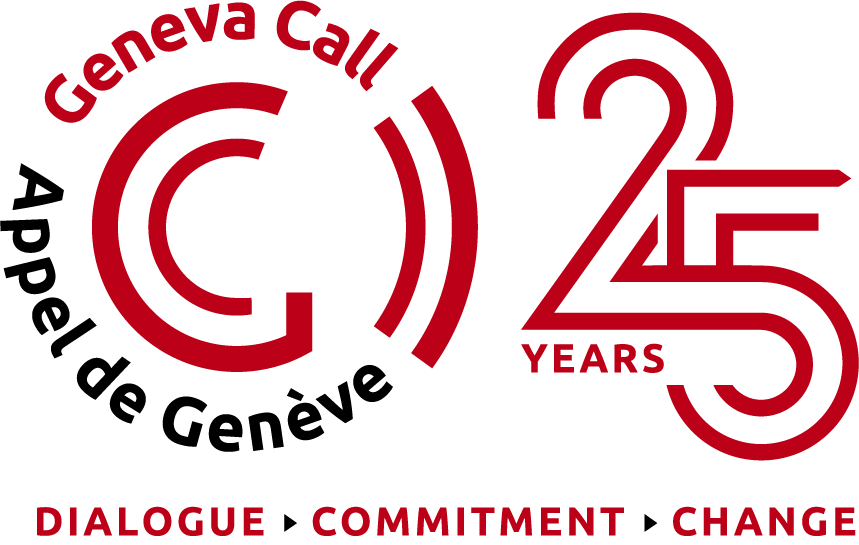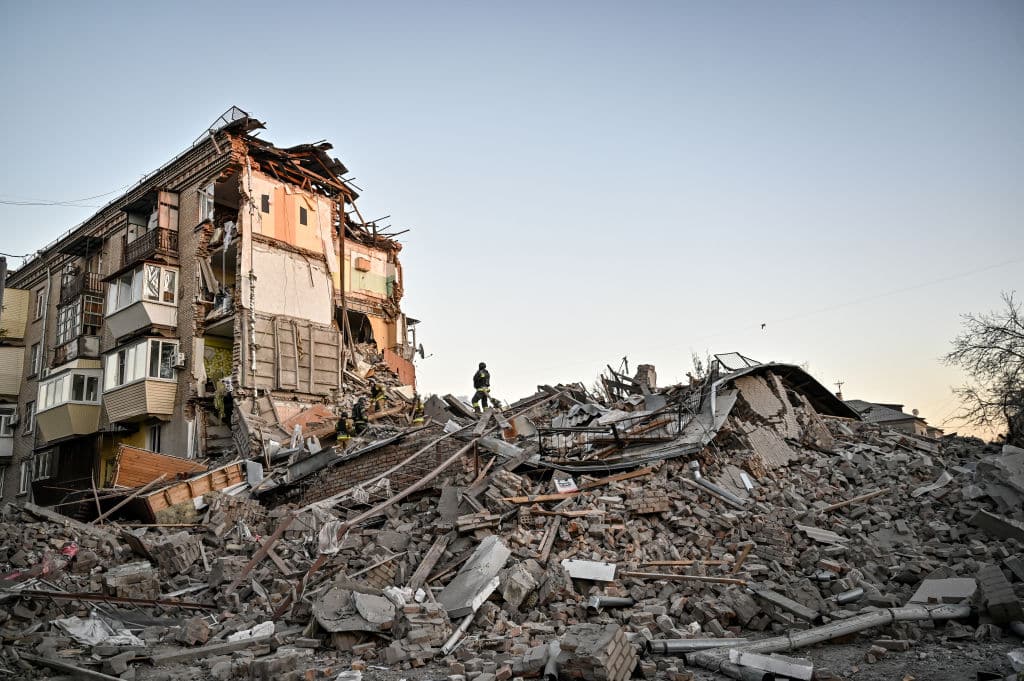
Not just a tribute – a wake-up call: World Humanitarian Day 2025
19 August 2025
Each year on August 19, World Humanitarian Day honours the memory of humanitarian workers who have been killed or injured in the course of their work – and it pays tribute to those who continue to risk their lives in some of the world’s most dangerous places.
This year, that tribute carries even more weight.
In 2024, the world witnessed an unprecedented loss of humanitarian and health workers – the deadliest year on record. And 2025 could be even worse. The killing of aid workers has become disturbingly routine, too often ignored by headlines, too rarely met with accountability.
Yet despite this grim reality, humanitarians continue to move toward danger – crossing checkpoints, navigating conflict zones, and putting their lives on the line for the sake of others. Their courage is not abstract. It is real, urgent, and ongoing.
To mark World Humanitarian Day 2025, we asked Geneva Call colleagues to share what this day means to them. Now more than ever, we must protect those who protect humanity. We must protect the resilience, solidarity and unwavering commitment that define the humanitarian spirit.
Tina Gewis, Regional Head of Programme and Development Eurasia
Looking back over the past three decades, it’s striking how much we’ve come to accept that danger is an inherent part of humanitarian work, as if these risks are simply part of the job.
We have also witnessed how we have gradually become targets in some contexts, rather than just unfortunate individuals who were in the wrong place at the wrong time.
This puts a big mental strain on colleagues serving in some of the most volatile contexts in the world, and most of those people are working in their own country, and often within their own communities.
World Humanitarian Day is a moment of reflection for me, when I think of all the national staff I have had the chance to work with across conflict settings in the Middle East, the South Caucasus, Afghanistan, West and Central Africa.
In these contexts, I was just one of the expatriates they worked with over the years. They were the ones who stayed and continued, defending humanitarian principles and the importance of showing solidarity, often having to justify themselves to family and neighbours, explaining why they had chosen this path over becoming a businessman or government employee.

I think of colleagues in the Central African Republic who spent months on end in remote and volatile locations, cut off from loved ones when flights were suspended, or because someone had to ‘stay and deliver’. I think of colleagues in Ukraine who, in the midst of a horrendous war, still manage to focus on their work tasks after long nights in a bomb shelter with their small children.
Eftychios Mantas, Head of Safety & Security
For me, World Humanitarian Day is a reminder of faces and names I can no longer call.
In Gaza, I lost friends whose only “crime” was delivering food and medicine to families trapped between airstrikes. In Ukraine, a friend and medic – helping to evacuate a wounded civilian in Bakhmut – was killed by what appears to have been a deliberately targeted, laser-guided missile. It wasn’t accidental shelling; it was calculated. And there are countless other friends – in conflicts less visible, unheard of by most – who paid with their lives while trying to shield others.
These weren’t reckless or naïve people. They were skilled, dedicated, and utterly bound by the conviction that no human life is disposable. They chose to put themselves in harm’s way because the need was overwhelming and their calling undeniable.
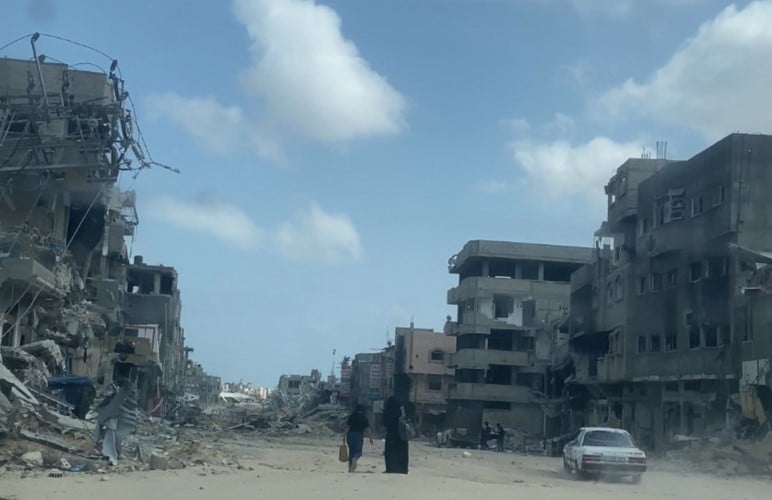
When we talk about the toll humanitarians are paying, we’re not speaking in abstractions. We’re talking about parents who will not return home, partners who will never receive that “I’m safe” text, and friendships cut short by violence they had no part in.
This work demands courage, but it also demands that we protect those who step forward.
Honouring their memory means not only telling their stories, but fighting – relentlessly – for the right of humanitarians to do their jobs without becoming targets.
On World Humanitarian Day, I remember these friends and colleagues. The best way to honour the fallen is to keep going, to keep showing up, and to insist that humanity is worth the risk.
Giuliano Perseu, Country Director Colombia
World Humanitarian Day is not just a pop-up alert in my calendar.
It’s the face of Alberto Trentini, who spent nine months in a Venezuelan jail simply for fulfilling his humanitarian duty. It’s the voice of a colleague who, over the phone, was told her mother had died – 7,000 kilometers away – a year after they last embraced.
These are not just personal anecdotes. They are the heartbeat of a profession that impacted 116 million people in 2024 alone (Numbers from OCHA’s World Humanitarian Day 2025 #ActforHumanity campaign). Humanitarian action carries weight – deeply political weight – and World Humanitarian Day is our moment to honour this work.
It’s about the daily work that puts us in a position to help people—no matter what their nationality, religion, ethnicity, gender identity, or political beliefs are.
It’s about looking past how a conflict began and instead focusing on how to reduce its devastating consequences.
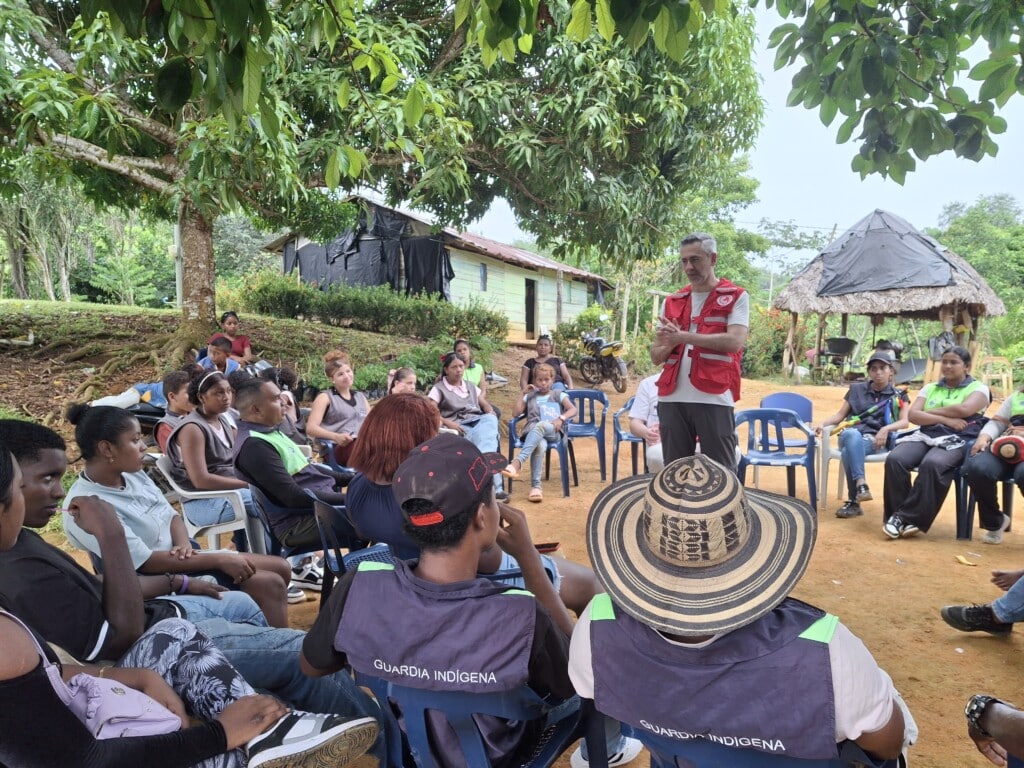
It’s about the courage to tell those in power: needs come first. Not family ties, not votes, not clan loyalties.
It’s about doing what is right, doing what our parents and grandparents taught us to do.
Yes, we humanitarians are often told we live in a bubble. And that’s partially true. We are, in many ways, sheltered from the full extent of suffering. We land in unfamiliar countries, often without speaking the local language or fully knowing the culture or history.
But that, precisely, is the essence of generosity: helping those to whom you owe nothing, and from whom you expect nothing.
Today, the humanitarian world is undergoing seismic changes. In particular, the international humanitarian law sector faces growing pressures – some aiming to bend our mission to nationalistic interests. Others have lost trust in what we do.
But ask yourself: would the world truly be better off without us?
Hiba Mikhail, Policy Coordinator
World Humanitarian Day is more than a day of awareness; it reminds us of the values that guide organisations like Geneva Call and the individuals working to alleviate suffering in conflict zones. It is a moment to reflect on the shared responsibility we have to safeguard human dignity – especially in times of crisis. I joined Geneva Call over ten years ago because I believed in International Humanitarian Law (IHL) as a framework for protection and accountability, ensuring that civilians – even those living under the control of armed groups and de facto authorities (AGDAs) – are safeguarded. Over time, I have learned that IHL compliance is complex and requires sustained dialogue, advocacy, and principled engagement. Upholding humanitarian principles is not the work of a single organisation; it demands collective and consistent action to make communities safer and enable humanitarian workers to operate with dignity and security.
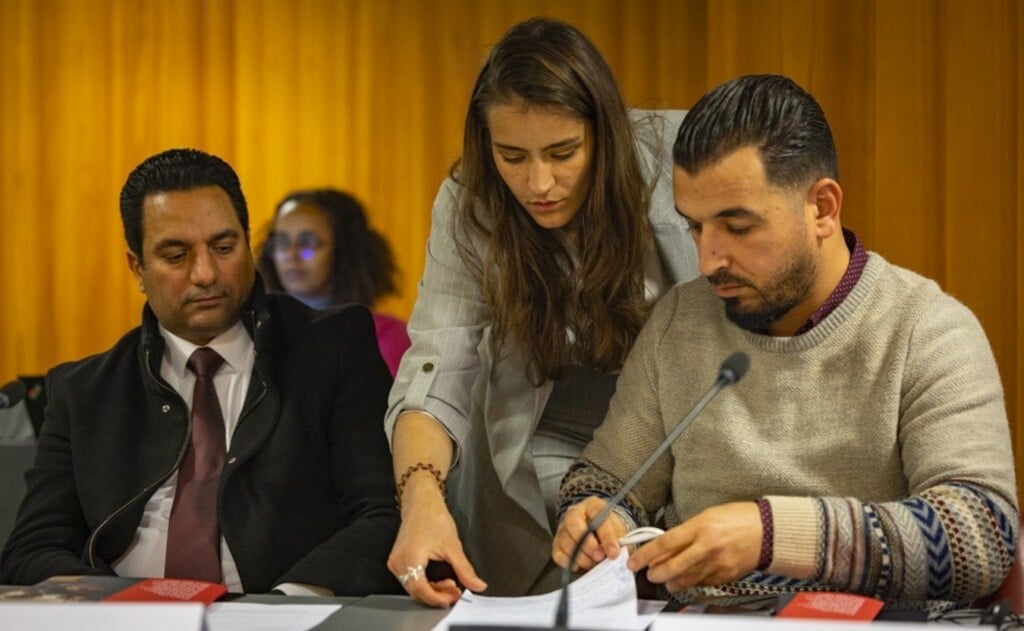
Humanitarian principles are the backbone of our work at Geneva Call, guiding every engagement with AGDAs and communities. Principles such as humanity, neutrality, impartiality, independence, and accountability are not abstract ideals – they are practical tools that reduce harm, build trust, and create safer spaces for civilians and humanitarian workers alike. By grounding our work in these principles, we ensure that protection and respect for human dignity are upheld effectively.
This year’s World Humanitarian Day message – to respect the laws of war, protect those who protect humanity, and end impunity – is a vital reminder of the challenges faced in conflict settings. Civilians are often the primary victims, while humanitarian workers face significant risks that limit their ability to respond. The persistent violation of IHL and the deliberate disregard for legal obligations by conflict parties erode international accountability and leave those most vulnerable exposed. This makes our work even more urgent: we must double down on efforts to respect IHL and translate legal norms into tangible action to protect civilians.
Ultimately, World Humanitarian Day reminds us that protection, dignity, and adherence to humanitarian principles are not optional – they define our shared humanity.
